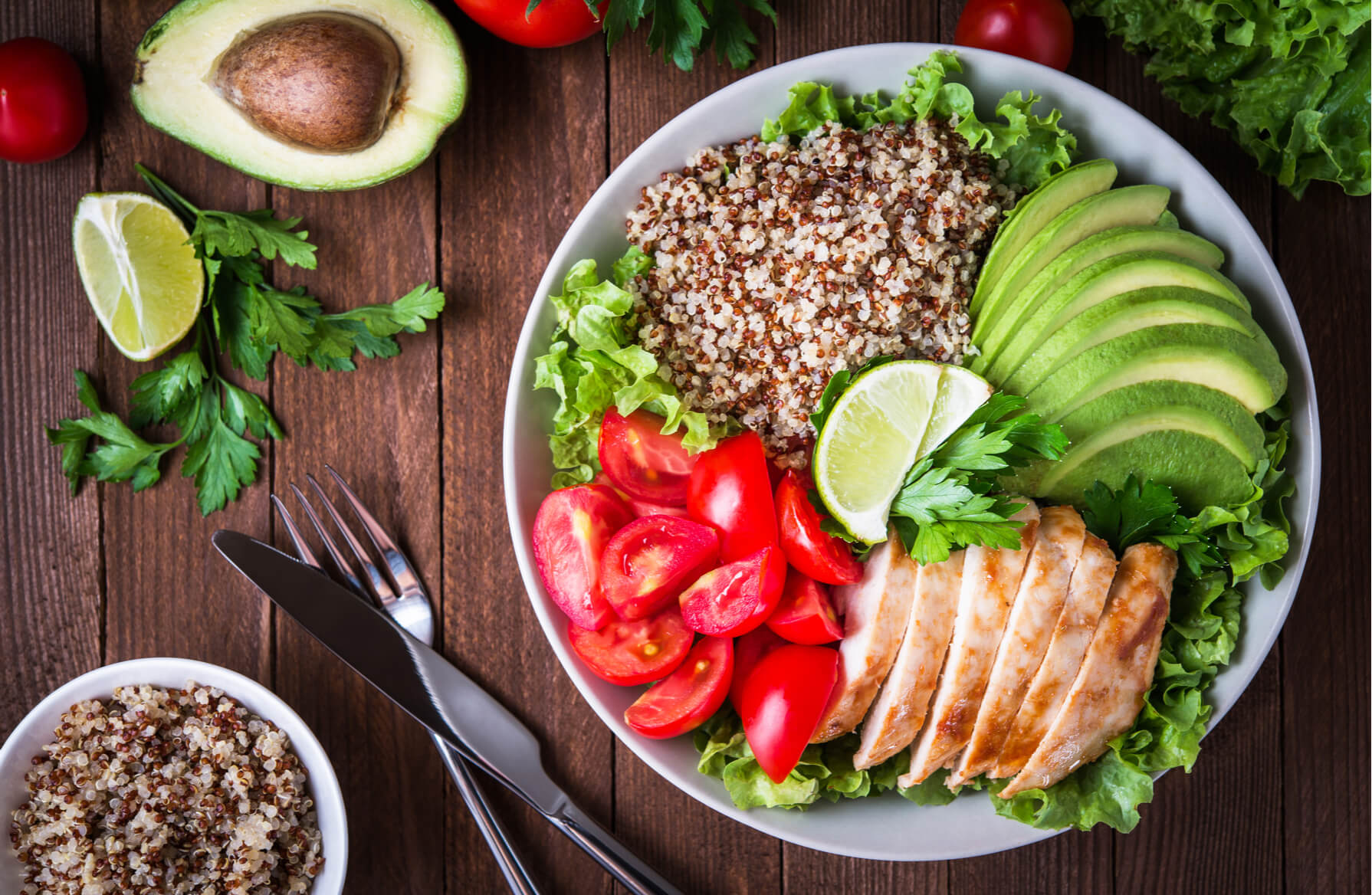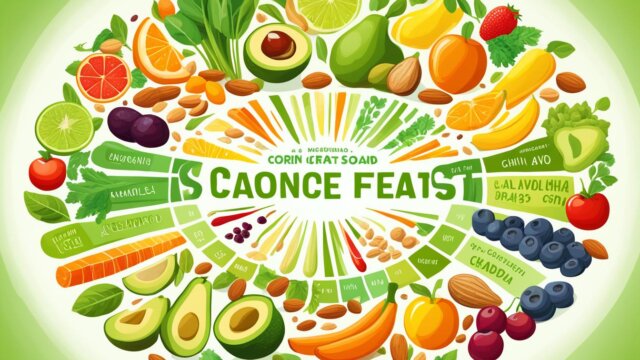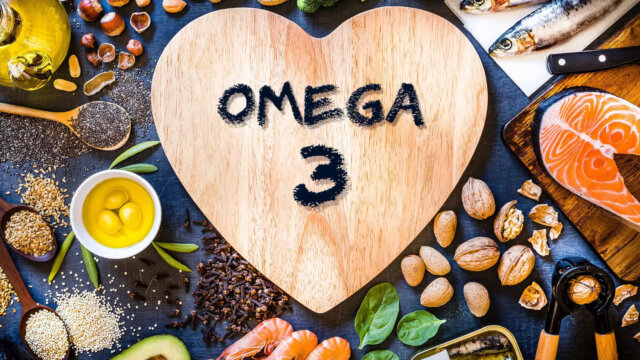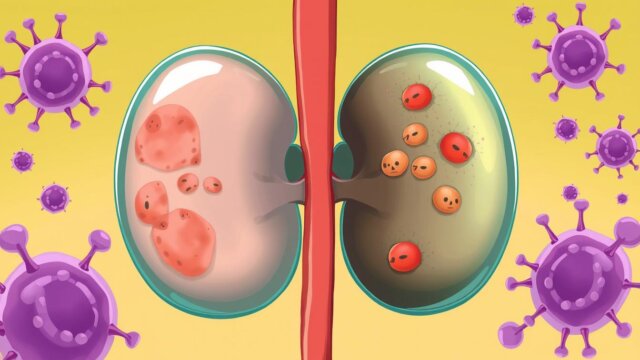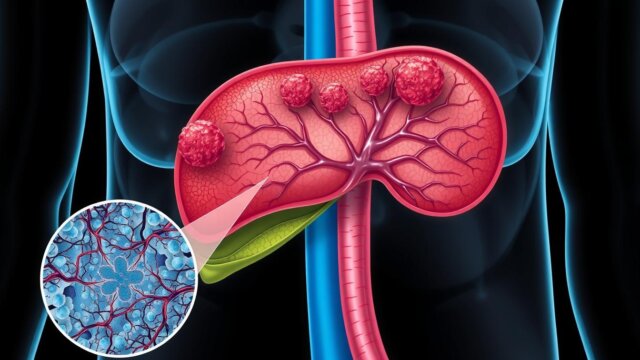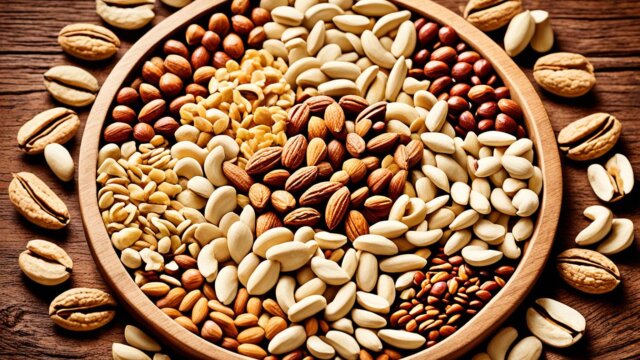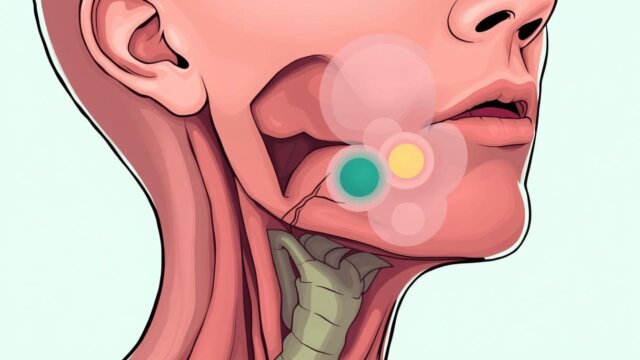FTC disclaimer: This post may contains affiliate links and we will be compensated if you click on a link and make a purchase.
Most of the time, we keep wondering how we should keep ourselves healthy and energetic. There is a vast number of super healthy foods that are tasty and filling.
Also, there are two basic principles to include to start living a healthy lifestyle.
The first one is to include super healthy foods in your diet, and the second piece of advice is to start doing exercise that you dislike the least.
When you include super healthy foods slowly to your lifestyle, then it will start transitioning to a new healthier lifestyle.
More importantly, these super healthy foods are inexpensive and don’t need much time to prepare your meal.
These super healthy foods contain many micro-nutrients, such as vitamins, minerals, fiber, and protein, and too low in calories.
Moreover, you need to remember that you need to pick these super healthy foods in an unprocessed way naturally.
Surprisingly, regular intake of these super healthy foods will slowly trick your mind to start loving healthy foods instead of junk foods.
Here, we have listed 50 incredibly super healthy foods that are surprisingly delicious and easy to cook.
50 super healthy foods that are filling but low in calories
Vegetables
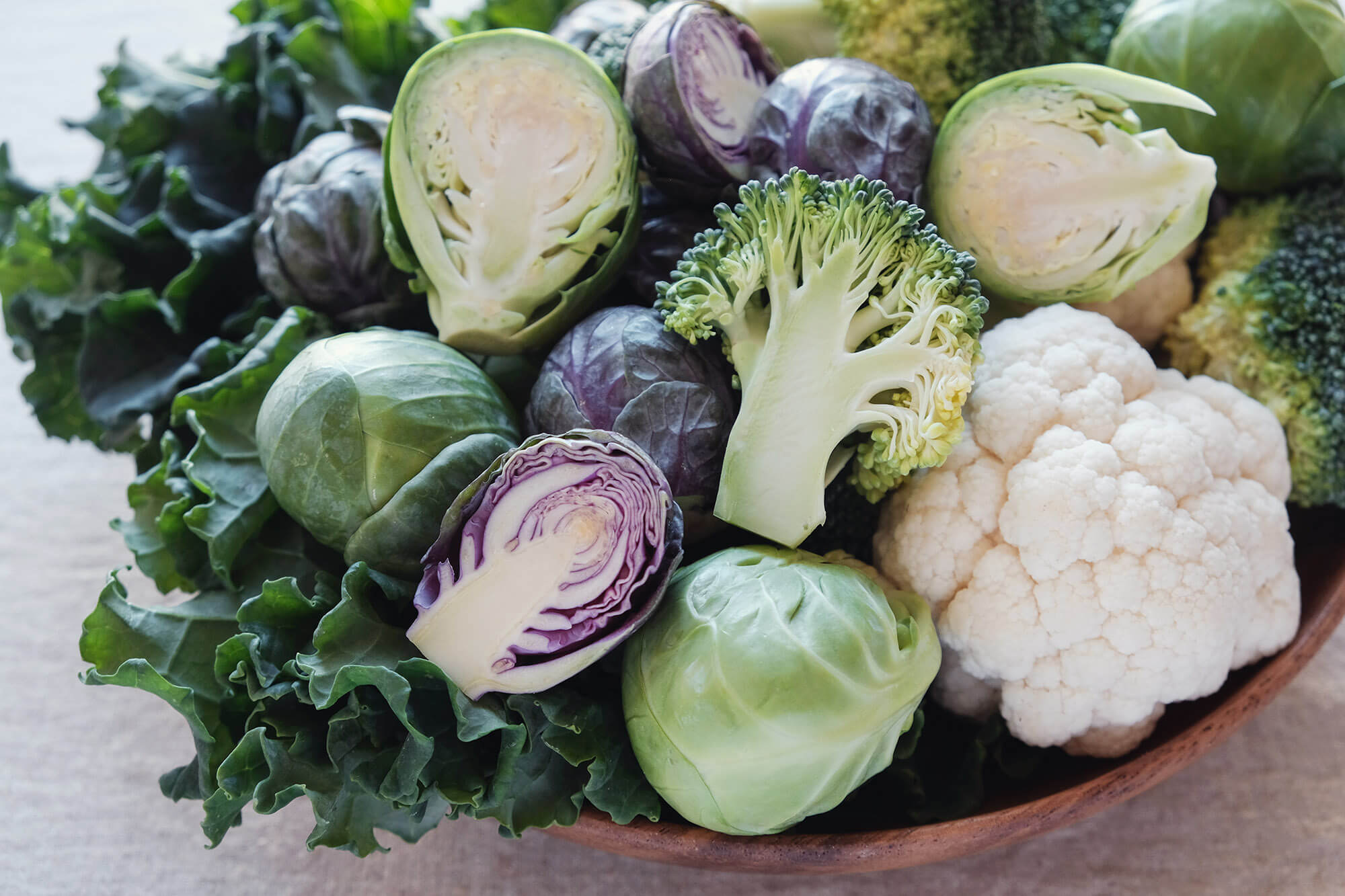
1. Kale
Kale is a super healthy food that lowers your cholesterol and reduces the risk of cancer. It comes under the family of cruciferous vegetables.
It contains a good source of essential nutrients such as potassium, manganese, copper, fiber, vitamin K, vitamin C, and calcium.
2. Broccoli
Broccoli is again a cruciferous vegetable that contains a healthy dose of fiber, vitamin c, and K.
Vitamin K assists in normal blood clotting and in developing healthy bones. At the same time, vitamin C helps in reducing inflammation.
Moreover, you will also get the right amount of potassium and calcium.
3. Cabbage
Cabbage is well known cruciferous vegetable that is a good source of beta carotene. It is also a good source of fiber, vitamin C, and calcium.
Regular intake of cabbage will boost your immune system and protect you from heart disease and cancer.
4. Garlic
Garlic is an incredibly super healthy food that improves your immune functionality.
Most of the research has mentioned that Garlic is beneficial in reducing the severity of cold and flu.
Garlic contains several compounds that have the potential to influence cell functionality.
5. Avocado
Avocados are mild and creamy and are considered super healthy foods. It has the right amount of monounsaturated fats that help lower your bad cholesterol (LDL) and boost good cholesterol (HDL).
Also, it is a good source of soluble and insoluble fiber that regulates your blood sugar levels.
However, it also contains vitamin E, vitamin K, folate, and potassium that protect your eyes.
Avocados are filling and make the perfect snacks when you are hungry between meals.
6. Cauliflower
Cauliflower is another cruciferous vegetable that naturally contains a high amount of fiber and B-vitamins.
More importantly, it also provides phytonutrients and antioxidants that protect you against cancer.
According to the National Cancer Institute report, cauliflower is packed with cancer-fighting compound glucosinolates.
Also, the cauliflower contains high fiber that aids in weight loss and in improving digestion.
It also contains a high amount of choline that improves memory and learning ability.
7. Bell peppers
Bell peppers are packed with vitamins and are low in calories. It was found to be an excellent source of vitamin C, potassium, and vitamin A.
Moreover, bell peppers also provide a high dose of fiber, folate, and iron.
You will find bell peppers in green, orange, yellow, and red. However, red bell pepper is the most nutritious one because it is packed with 11 times more beta-carotene and 1.5 times more vitamin C.
8. Spinach
Spinach is a super healthy food that is loaded with tons of nutrients and is low in calories. It is an excellent source of vitamin K, vitamin C, vitamin A, and folate.
Moreover, it is also a good source of manganese, magnesium, iron, and vitamin B2.
Eating spinach may benefit eye health, maintain bone health, reduce oxidative stress, reduce blood sugar levels, and prevent cancer.
It is estimated that half a spinach cup contains five times your daily dose of vitamins K. The perfect amount of vitamin K helps in blood clots and building strong bones.
9. Tomatoes
Tomatoes are the dietary source of all-powerful carotenoids: lycopene, alpha-carotene, beta-carotene, and lutein. It is also a good source of potassium, vitamin C, folate, and vitamin K.
However, tomatoes help prevent all significant cancer types, such as breast cancer, prostate cancer, pancreas cancer, lung cancer, stomach cancer, and colon cancer.
Also, it prevents significant lifestyle diseases such as diabetes, cardiovascular disease, asthma, and cataracts.
While eating one tomato on your daily diet will give you an array of nutrients that help improve your body’s functioning and flushes out harmful free radicals.
According to the study published in Neurology, it was found that middle-aged men with a high amount of lycopene in their blood have a 55% lesser chance of getting a stroke.
10. Cucumbers
Cucumbers are a low-calorie food that mostly consists of water. It contains essential electrolytes and also prevents dehydration in hot weather.
The top nutrient present in cucumber is vitamin K that promotes bone health. Moreover, it is a good source of antioxidants and aid in weight loss.
However, it also lowers your blood sugar and supports regular bowel movements.
It is an incredibly versatile addition to your daily diet with essential vitamins and minerals and high water content.
11. Onions
Onions are super healthy foods that contain antioxidants and anti-inflammatory compounds.
Their potent anti-inflammatory properties decrease triglycerides and reduce cholesterol and high blood pressure levels.
Further, regular intake of onions in your diet lowers heart disease risk and protect against blood clots.
Onions are healthy in both ways, whether you take raw or cooked. Moreover, raw onions contain a high amount of sulfur compounds that provide additional health benefits.
Also, raw onions are known to lower bad cholesterol (LDL) and keep your heart healthy.
Furthermore, onions are a good source of fiber, folic acid, and B-vitamins, which help form new healthy cells.
In last, onions contain antioxidants compounds known as phenolics that destroy free radicals and protects from cancer.
12. Mushrooms
Mushrooms are meaty in taste and are filling too. It is the only plant source foods that contain vitamin D.
Moreover, mushrooms are considered super healthy foods. It is a good source of B vitamins and has a powerful antioxidant called selenium.
Do you know that a significant amount of selenium is needed to support your immune system and prevent damage to cells and tissues?
Furthermore, mushrooms are high in fiber, potassium, and vitamin C that contribute to cardiovascular health and regulate high blood pressure.
Fruits
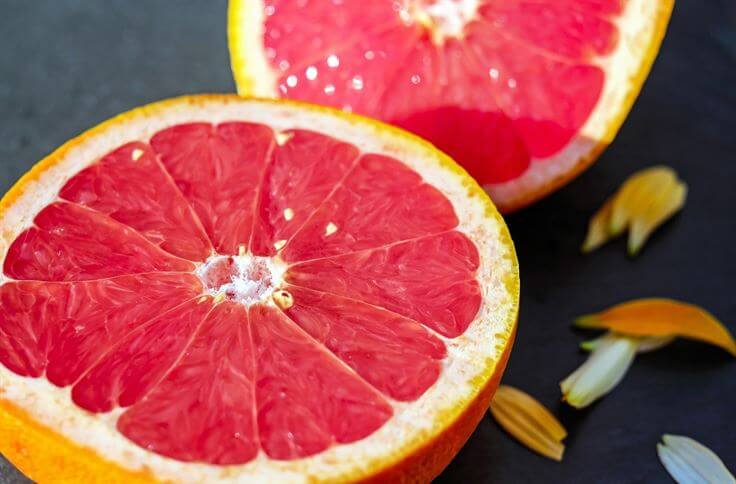
13. Apple
Apples are super healthy foods that are rich in fiber, vitamins, and minerals. It contains an array of antioxidants that helps in neutralizing free radicals.
Moreover, apples also aid in weight loss and prevent obesity. The type of fiber contained in apples will make you feel fuller and complete.
It is also a good source of vitamin c and potassium that boosts your immunity. More importantly, an apple contains powerful antioxidants called quercetin and pectin that protect your brain cells from damage.
14. Blueberries
Blueberries are super healthy foods that are low in calories and high in antioxidants.
Further, blueberries contain the right amount of fiber, potassium, folate, vitamin C, vitamin B6, and phytonutrients.
It protects DNA damage, reduces bad cholesterol in your bloodstream, and also lower blood pressure.
Also, the blueberries have exceptional antioxidants known as anthocyanidins that give deep blue-purple color to the fruit.
The anthocyanidins are highly active phytonutrients that protect your blood vessels and reinforce your collagen.
Moreover, blueberries protect your memory by protecting it from brain inflammation and also boost brain cell communication.
15. Guava
Guava is hailed as super healthy food due to its numerous health benefits. It is rich in vitamin A, vitamin C, folic acid, potassium, copper, fiber, manganese, flavonoids, and other phytonutrients.
More importantly, guava contains five times more vitamin C present in oranges. And it also has more potassium than bananas.
Thus, both vitamin C and potassium will boost your immunity and great for your digestive health.
Guava is rich in antioxidants and anti-inflammatory compounds that protect you from cholestatic liver damage.
Also, taking guava will reduce high blood pressure and prevent diabetes. It also protects you from cough, diarrhea, and colon cancer.
16. Oranges
Oranges are highly nutritious citrus fruit and are also low in calories.
It is an excellent source of vitamin C, an antioxidant that protects your cells from damage.
While taking one orange daily supplies, more than 100% of the daily dose of vitamin C.
It is also a good source of folate, thiamine, potassium, and calcium.
Moreover, oranges keep your bowels healthy, ulcers at bay, and lower your cholesterol.
17. Watermelon
Watermelon is a super healthy food that is sweet and juicy and makes you feel refreshed during the hot summer.
Moreover, watermelon is a versatile fruit that is packed with vitamins, fiber, and antioxidants. More importantly, watermelon is rich in L-citrulline, an amino acid responsible for improving blood flow.
However, L-citrulline is very useful in boosting your sex drive by increasing your sexual organs’ blood flow.
Watermelon is safe to eat even for diabetes patients because of the low glycemic load.
Moreover, watermelon red color comes from lycopene, an antioxidant that curbs cancer and diabetes risk.
18. Papaya
Papaya is yet another super healthy food that contains a high amount of enzyme known as papain.
Papain is a proteolytic enzyme that breaks down proteins into smaller protein fragments known as peptides and amino acids.
Moreover, papaya is loaded with antioxidants that lower inflammation in your body and fight against diseases.
Consuming papaya will reduce the risk of getting cancer, heart diseases, diabetes and improves digestion and blood pressure.
For healthy and glowing skin, papaya is filled with vitamin C, vitamin A, and vitamin E.
Poultry and Meats
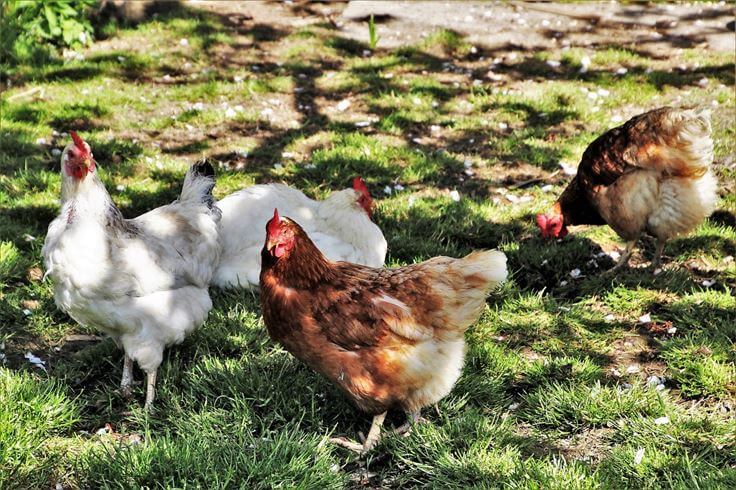
19. Eggs
Eggs are one of the most nutritious food on the planet. Most of the studies have mentioned that the consumption of eggs daily has drastically lowered coronary heart disease and stroke risk.
Even extensive study has highlighted that whole eggs’ consumption has lowered low-density lipoprotein (LDL) and increased High-density lipoprotein (HDL).
Moreover, it is a good source of B-complex vitamins, choline, that reduces inflammation and helps develop a neurological function.
20. Salmon
Salmon is packed with omega-3 fatty acids, vitamin B12, selenium, and choline, improving your immunity.
The intake of salmon supports healthy cholesterol levels, keeps blood and nerve cells healthy, and builds DNA.
Moreover, salmon is also rich in astaxanthin, a naturally occurring carotenoid acting as oxidative stress in the blood.
Astaxanthin is a potent anti-inflammatory agent that reduces blood pressure, prevent diabetes, improve heart health, and reduces the risk of getting brain damage.
21. Sardines
Sardines are an excellent source of omega-3 fatty acids, calcium, vitamin D, and selenium. It contains high protein and high fat that promote weight loss.
It also helps in curbing your appetite by preventing food cravings and snacking.
Moreover, sardines also reduces the risk of getting heart diseases and age-related macular degeneration.
Being high in Omega-3 fatty acids, consumption of sardines will lower fat levels in the liver and improve sexual performance.
22. Pasture-raised Chicken
Pasture-raised chicken is high in iron, Omega-3 fatty acids, and antioxidants like vitamin E.
Chicken is a good source of protein that plays a vital role in building our muscles.
Chicken breast is an excellent source of selenium, phosphorous, vitamin B6, and niacin.
Moreover, taking boiled chicken is very good for cold and flu because it contains cysteine that helps in thinning mucus in the lung and makes it easier to breathe.
23. Grass-fed Beef
Grass-fed beef is an excellent L-Carnitine source that helps reduce oxidative stress, nitric oxide, hypertension, and inflammation.
Moreover, L-Carnitine is also associated with improving fasting glucose levels and cholesterols levels.
Thus, beef helps in improving heart health, diabetes, and weight loss. According to the study, the consumption of beef will reduce all-cause mortality by 27%.
Furthermore, glutathione in beef, an antioxidant that helps increase longevity, prevent the risk of getting chronic diseases and strengthen your immune system.
Moreover, beef is high in protein that improves muscle mass, repair tissues, and discourages food cravings.
However, grass-fed beef is relatively dense in minerals such as calcium, copper, iron, magnesium, manganese, selenium, zinc, potassium, and phosphorus.
24. Grass-fed Lamb
Grass-fed lamb is an excellent source of iron, zinc, selenium, protein, vitamin B12, and vitamin B3.
Regular consumption of lamb may promote muscle growth, prevent anemia, reduce the risk of getting cancer and heart disease.
Moreover, grass-fed lamb is an excellent source of conjugated linoleic acid (CLA), glutathione, creatine, and taurine.
Glutathione and taurine are antioxidants that are beneficial in your heart and muscle growth.
While conjugated linoleic acids reduce body fat mass and creatine is an essential compound that works as an energy source for muscles.
Nuts and Seeds
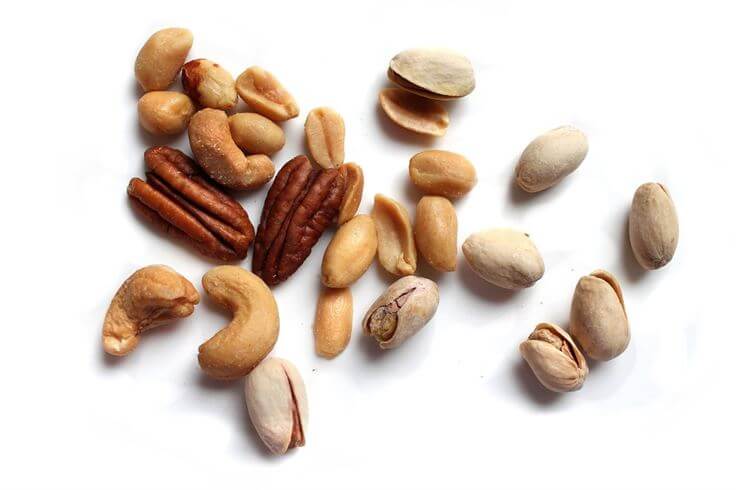
25. Walnuts
Walnuts are highly nutritious and are excellent sources of omega-3 fatty acids. It is also considered a vegan source of omega-3 fatty acids that will lower your bad cholesterol and increase good cholesterol.
Also, the alpha-linolenic acid, an omega-3 fatty acid present in walnuts, improves memory and coordination.
It is also an excellent source of antioxidants that helps against free radicals. Other than that, it has the right amount of plant protein and fiber.
26. Almonds
Almonds are the nut that is packed with nutrients. It contains healthy fat, fiber, plant protein, magnesium, and vitamin E.
When you include almonds in your daily diet, it will lower blood sugar levels, reduce blood pressure, and lower cholesterol levels.
Moreover, they reduce hunger and aids in weight loss.
You can include 7-8 almonds in your morning breakfast, or you can add them to your salads.
27. Chia seeds
Chia seeds are an excellent source of omega-3 fatty acids, rich in antioxidants, fiber, calcium, and iron.
Moreover, chia seeds improve your digestion, aids in weight loss, and potentially manage various diseases.
Also, chia seeds help control your hunger, lower your cholesterol, and improve your gut health.
However, chia seeds are rich in alpha-linolenic acid (ALA), an omega-3 fatty acid that improves your heart health.
28. Peanuts
Peanuts are an excellent source of healthy fats, protein, and fiber. It is also rich in minerals and vitamins such as potassium, phosphorous, magnesium, and all B vitamins.
Also, peanuts are a natural L-arginine source that helps erectile dysfunction and improve sexual function in men.
Moreover, peanuts come with heart-healthy fat such as mono- and polyunsaturated fats that help lower your bad cholesterol (LDL).
Peanuts are very low in the glycemic index, which helps control your blood sugar level and cure your diabetes.
Regular consumption of peanuts will improve your gut health and keeps you satisfied for longer hours.
29. Pumpkin seeds
Pumpkin seed, also known as pepitas, is a good source of healthful oil, magnesium, manganese, iron, and copper.
Moreover, pumpkin seed is beneficial in men in promoting men’s fertility, preventing prostate problems, improve testosterone levels.
It is also very essential in building, repairing, and maintaining your muscle mass.
However, high zinc levels, magnesium, antioxidants, and essential fatty acids promote healthy hair growth.
While consumption of pumpkin seeds daily improves your insulin regulation, decrease oxidative stress, and stabilize blood sugar levels.
30. Sunflower seeds
Sunflower seeds are rich in vitamin E, magnesium, linoleic fatty acids, and protein. It improves your blood pressure, reduces cholesterol and blood sugar.
Moreover, a quarter-cup of sunflower seeds contains 14 grams of healthy monounsaturated and polyunsaturated fats. Its work is to prevent cardiovascular disease and keep your heart healthy.
Also, sunflower seeds are an excellent Thiamin source (vitamin B1) that manages energy production, improves blood transmission, and helps in muscle building.
However, sunflower seeds consist of different types of enzymes that regulate hormonal balance.
31. Cashews nut
Cashew nuts contain a high level of magnesium, phosphorus, manganese, zinc, and copper.
It is also a good source of monounsaturated fatty acids that promotes good cholesterol (HDL).
Moreover, eating the right amount of cashew nuts will lower the risk of getting cardiovascular disease, regulate high blood pressure, promote bones and muscle growth.
Also, cashew nuts contain the right amount of zinc that has a positive influence on male fertility.
However, vitamin K in cashew nuts improves cognitive function, reduce stress, and maintains brain health.
Legumes
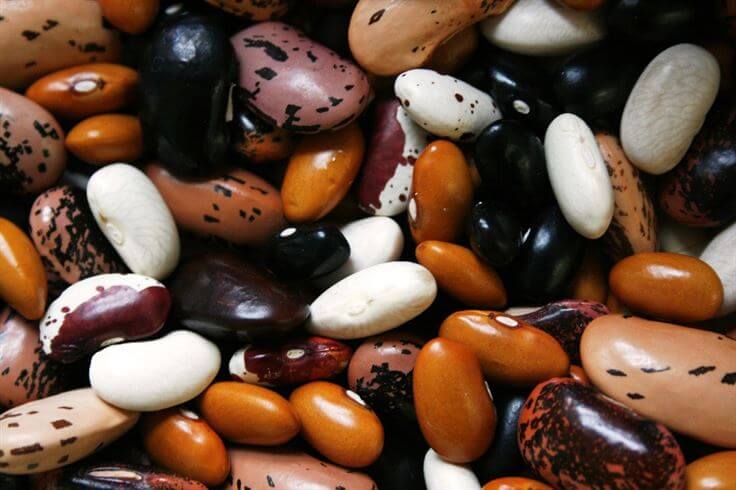
32. Kidney beans
Kidney beans are excellent sources of plant-based protein. It is also rich in various vitamins, minerals, fiber, and antioxidants.
Regular consumption of kidney beans aids in weight loss, regulate blood sugar levels and promote colon health.
Moreover, kidney beans are excellent sources of vitamin B1 that contribute to healthy cognitive functions.
Kidney beans contain the right amount of soluble and insoluble fiber that promote good digestive health and bowel movement.
Interestingly, it is a very low glycaemic food that is very good for diabetes, lower bad cholesterol, and aids in weight loss.
33. Garbanzo beans (chickpeas)
Garbanzo beans are excellent plant-based protein sources and a rich source of vitamins, minerals, and fiber.
The fiber in chickpeas lowers cholesterol levels in the blood. It also contains magnesium, iron, potassium, and B vitamins that support heart health and bone health.
Moreover, garbanzo beans are a good source of folate and vitamin B6.
Chickpeas contain some active compounds known as butyrate and saponins that protect you from certain types of cancer.
However, resistant starch in garbanzo beans improves digestive health and promotes healthy bowel flora.
Consuming chickpeas will suppress your appetite and reduce calorie intake.
34. Tofu
Tofu is a good source of plant-based protein and contains mainly all nine essential amino acids. It is also a valuable source of minerals like calcium, iron, manganese, and phosphorous.
It also contains some traces of magnesium, copper, zinc, and vitamin B1.
Also, tofu is naturally low in calories and gluten-free.
It is considered super healthy food that prevents various chronic diseases like diabetes, high blood pressure, and cancer.
Moreover, tofu is rich in omega-3 fatty acids and good cholesterol (HDL).
Fats and Oils
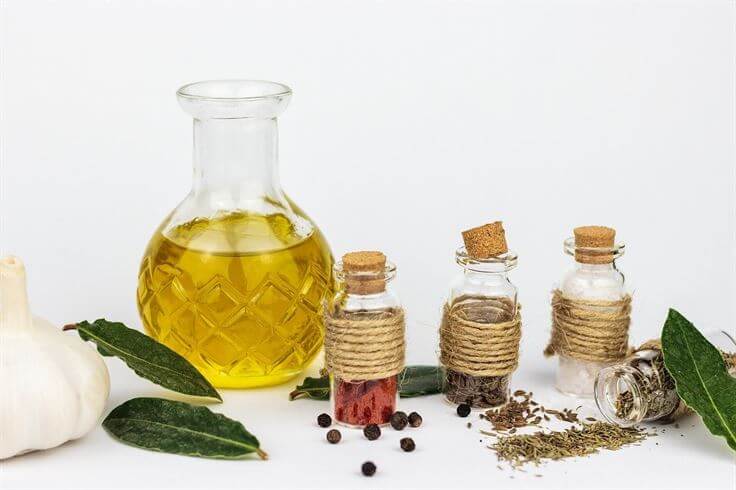
35. Ghee
Ghee is a super healthy food that plays a vital role in balancing hormones and maintaining good cholesterol. It also has a high heat point that prevents in production of free radicals.
Pure desi ghee contains the right amount of omega-3 fatty acids and vitamin A. Moreover, ghee contains lauric acid that has potent antimicrobial and antifungal properties.
Also, ghee is one of the highest sources of butyric acid that supports the colon’s intestinal wall and cells’ health.
Moreover, ghee contains the right amount of high quality saturated fat that is essential for brain health.
Ghee is an excellent source of vitamin A in retinol form that is directly absorbed by the body. Also, it contains the right amount of vitamin E, an important antioxidant.
Additionally, it is a valuable source of vitamin K2 that is essential for bones and heart health.
36. Coconut oil
Coconut oil is widely accepted as the world’s healthiest oil to consume and use for hair, skin, and teeth.
It is high in saturated fats (Medium-Chain Triglycerides) that raises your good cholesterol (HDL) in the blood.
The medium-chain triglycerides (MCT) present in coconut oil helps in maintaining high blood sugar.
The lauric acid in coconut oil kills harmful pathogens such as bacteria, viruses, and fungi.
Moreover, MCT significantly reduces hunger and encourages a fat burner. It is also found to improve brain function and reduce harmful abdominal fat.
37. Avocado oil
Avocado oil is again one of the healthiest oil to use that contains heart-healthy monounsaturated fat and antioxidants.
Moreover, avocado oil is high in potassium and vitamin E that keeps your blood vessels healthy and eradicates free radicals.
Avocado oil is very effective in reducing blood cholesterol levels and in supporting heart health.
However, avocado oil is rich in lutein, a carotenoid that benefits your eye’s health.
It also reduces the symptoms of arthritis, prevents gun diseases, and improves skin.
38. Olive oil
Olive oil is one of the healthiest oil you would like to include in your diet. It has heart-healthy monounsaturated fats that lower overall bad cholesterol in your body.
It is also very high in antioxidants that prevent free radical and develop immunity.
Moreover, olive oil is beneficial in weight loss, lowering blood sugar, reduce blood pressure and cholesterol, and prevent cancer and arthritis.
It is also used in the treatment of colon and breast cancer, heart diseases, and diabetes.
However, taking extra virgin olive oil on your daily diet will prevent the formation of free radicals and thus reduce the incidence of getting colon cancer.
39. Butter
Butter is a highly nutritious food that contains essential compounds like butyrate and conjugated linoleic acid.
Butyrate is a short-chain fatty acid that promotes digestive health and reduces intestinal inflammation.
Moreover, conjugated linoleic acid helps prevent the various types of cancer, such as colon, breast, stomach, prostate, colorectal, and liver cancer.
Moreover, butter contains fat-soluble vitamins such as vitamins A, E, and K2 that are directly absorbed by the body.
Also, the absorption of these nutrients will promote eye health, revert tooth decay, and useful in thyroid and adrenal health.
Dairy
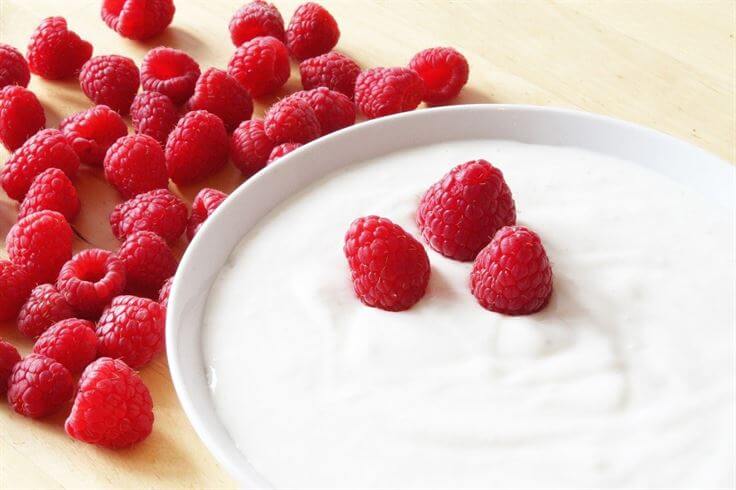
40. Greek Yogurt
Greek yogurt is rich in probiotics that help in increasing good gut bacteria. These good gut bacteria improve digestion and boost your immunity.
It is also rich in protein, calcium, potassium, iodine, and vitamin B12.
Further, regular consumption of greek yogurt will improve your bone health, reduce hunger, boost metabolism, improve gut health, and encourage good mental health.
It is also very useful in lowering your blood pressure and reduce the risk of getting type 2 diabetes.
Moreover, Greek yogurt contains twice the number of protein compared to regular yogurt. So, per serving of Greek yogurt contains 8 grams of protein.
41. Cheese
Cheese is a rich source of calcium, fat, and protein. It is also a good source of vitamin B12, vitamin A, zinc, phosphorous, and riboflavin.
Also, grass-fed cheese contains the right amount of omega-3 fatty acids and vitamin K2.
The major benefits of cheese are to promote bone health and relieve you from hypertension and osteoporosis.
Moreover, cheese contains healthy fats that keep your heart healthy and maintains a healthy weight.
However, cheese also contains fatty acids in the form of linoleic acid and sphingolipids that boost immunity and prevent cancer.
Herbs and Spices
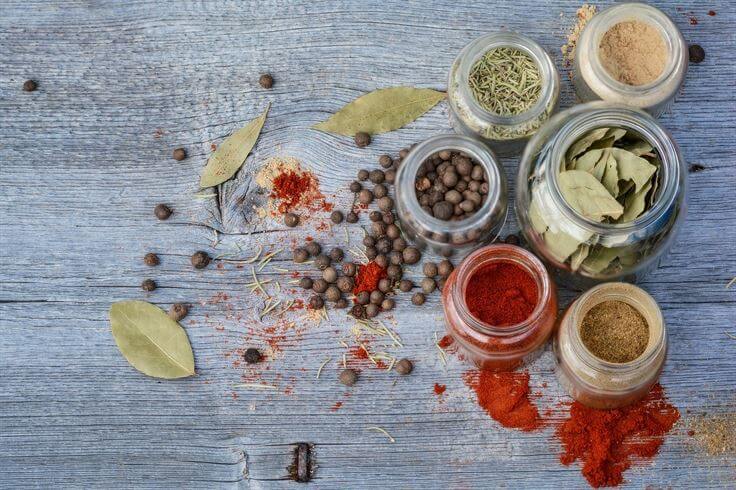
42. Turmeric
Turmeric is a super healthy food that contains potent anti-inflammatory, antimicrobial and antiviral properties.
It has the potential to prevent cancer, heart disease, depression, Alzheimer’s, and arthritis.
Moreover, turmeric’s antioxidant properties improve liver functioning and act as a digestive healing agent.
43. Cinnamon
Cinnamon is another super healthy food that contains antioxidant, anti-inflammatory, antimicrobial properties.
Moreover, cinnamon is very useful in lowering our blood sugar levels and also prevent diabetes.
Taking cinnamon on your diet will help you to lose visceral fat and supports the weight loss journey.
Also, they decrease the risk of getting heart diseases and any form of cancer.
However, cinnamon also contains an active compound like cinnamate that reduces the bad cholesterol (LDL)
44. Cloves
Cloves have a spicy and pungent taste that acts as antibacterial, antifungal, and antiviral agents.
It contains an active compound called eugenol that helps to ease your digestion.
Moreover, clover also improves insulin sensitivity, control blood sugar levels, and protect your immune system.
However, cloves are useful in the treatment of gum diseases and relieve you from headache.
45. Cilantro and Coriander seeds
Coriander seeds are spices that improve your digestive health and lower your bad cholesterol.
It works magically for all types of intestinal issues such as bloating, gastric, nausea, and diarrhea.
Moreover, it supports the treatment of diabetes, lowers blood sugar, fights against infection, and promotes a healthy heart, brain, and skin.
Coriander seeds are a rich source of iron that enhances your strength, energy and promotes bone health.
Further, the anti-inflammatory property of coriander seed protects your nervous system from damage.
46. Oregano
Oregano is effective in reducing viral infection, decrease inflammation, and fight against bacteria.
Moreover, oregano is rich in dietary antioxidants that help in eliminating free radicals and toxic substances.
It also contributes to fighting against chronic diseases such as heart diseases and cancer.
However, it also aids in digestion, boosts metabolism and immunity.
Grains
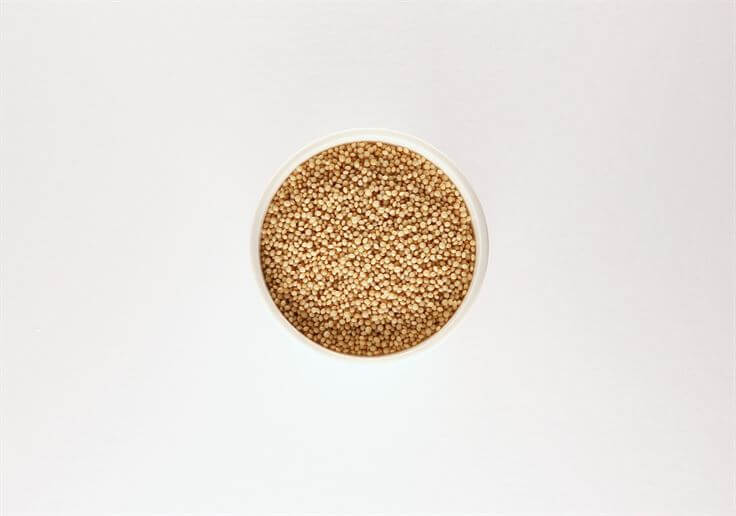
47. Millet
Millets are rich in minerals such as calcium, iron, magnesium, phosphorous, potassium, and selenium.
It is also a good source of essential vitamins like pantothenic acid, niacin, riboflavin, folate, vitamin B6, C, E, and K.
Moreover, millet is rich in fiber that helps in digestion, supports your bowel movement, and aids in weight loss.
Consumption of millet will decrease the triglyceride level in your blood and reduce the risk of colon cancer.
48. Quinoa
Quinoa is gluten-free, high in fiber, and contains a sufficient amount of nine essential amino acids.
It also contains magnesium, potassium, calcium, iron, phosphorous, vitamin E, and B vitamins.
Quinoa is often described as “super-healthy food” or “super healthy grain.”
Moreover, the soluble fiber in quinoa protects your heart and aids in weight loss.
Also, it regulates blood sugar, prevents diabetes, improves metabolism, enhances digestive health, and aids in treating anemia.
49. Buckwheat
Buckwheat is a good source of protein and fiber that aids in weight loss, manage diabetes, and improve heart health.
It is gluten-free and non-allergenic.
In addition to this, buckwheat contains a good amount of antioxidants, B vitamins, potassium, phosphorous, and magnesium.
Consumption of buckwheat regularly will lower your cholesterol and regulate blood pressure levels.
50. Whole wheat
Whole wheat is nutrient-rich and high in fiber. It reduces the risk of getting heart diseases, stroke, obesity, and type 2 diabetes.
It supports healthy digestion, reduces chronic inflammation, and prevents colon cancer.
The most popular ones are Emmer and Einkorn wheat that contains antioxidants in the form of Lutein, Lignans, Alkylresorcinols, and Ferulic acid.
Moreover, whole wheat flour is a good source of selenium, manganese, copper, folate, phosphorous, and B vitamins.
